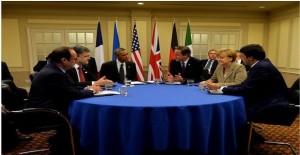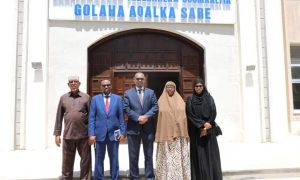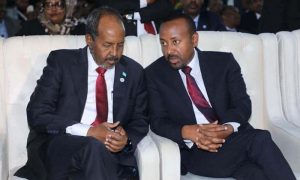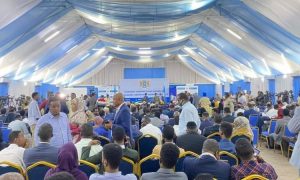
By Isaac Muhammad – The president of France Francois Hollande’s response to Friday’s cruel attacks in France, now claimed by the Islamic State, was instantaneous, direct and adamant. “We are going to lead a war which will be pitiless,” he declared.
The question is whether further war can provide an antidote to the problem at hand: A region that is disoriented with thousands dying each month; a merciless destruction on humanity, and hundreds of thousands forced to seek safer place to live, and a resulting disaster overflow into the outside world “France, Turkey, and Lebanon” to name a few.
Surprisingly, history dictates us differently. Back in the 1980s the Soviet Union exhausted attempting to appease Afghanistan and succeeded only in killing hundreds of thousands if not a million Afghans. Similarly, the United States attempted to pacify Iraq and ended up producing similarly destabilizing results. By the time US troops withdrew in 2011, “something like 200,000 Iraqis had died, most of them civilians. Today Iraq teeters on the brink of disintegration.” ~Perhaps if the Russians had tried harder or the Americans had stayed longer, they might have achieved a more favorable outcome. Yet that qualifies as a speculative possibility at best~.
By almost any measure, no doubt, the West enjoys the advantage of clear-cut military superiority in this conflict, stronger than its enemies, superior arsenals, more sophisticated weapons, better trained and educated in the art of war generals, and better fed, paid, equipped, and trained fighters. But yet most of this has proven to be irrelevant at all in this war against terrorism. Time and again the actual employment of that ostensibly superior military might has produced results other than those intended or anticipated. Even where armed intervention has achieved a semblance of tactical success — the ousting of some unsavory dictator, for example — it has yielded neither reconciliation nor willing submission nor even sullen compliance. Instead, intervention typically serves to aggravate, inciting further resistance. Rather than putting out the fires of radicalism, we end up feeding them.
The fact is that United States and its European allies face a disconcerting tactical conundrum. Collectively they find themselves locked in a protracted conflict with groups of Islamic radicalism [ISIS, Al-Qaida, Al-Shabab, Boko Haram, and others], with prospects of ending this conflict anytime soon appear to be nil. Alas, so too do prospects of winning it.
Vowing to pour yet more fuel on that fire, Hollande and other Western leaders exhibit a crippling absence of ingenuity when it comes to the Islamic world. ‘Simply trying harder will not avail as a basis of policy.’ -It’s past time for the West, and above all for the United States as the West’s primary military power, to consider trying something different-.
As one said, “Rather than assuming an offensive posture, the West should revert to a defensive one. Instead of attempting to impose its will on the Greater Middle East, it should erect barriers to protect itself from the violence emanating from that quarter. Rather than vainly attempting to police or control, seek to understand to prevent.”
.
______________________
 Isaac Muhammad is the founder and the Chairman of the Legacy Center for Peace and Transparency, a think tank organization dedicated to fighting corruption, building peace, and democratic society in Somalia. He has a master’s degree in Business Administration from Hamline University School of Business and Bachelor’s degree in Accounting from Metropolitan State University. Follow him on twitter @Isaacmuhammad1
Isaac Muhammad is the founder and the Chairman of the Legacy Center for Peace and Transparency, a think tank organization dedicated to fighting corruption, building peace, and democratic society in Somalia. He has a master’s degree in Business Administration from Hamline University School of Business and Bachelor’s degree in Accounting from Metropolitan State University. Follow him on twitter @Isaacmuhammad1
_____________________________________________________________________________________
Xafiiska Wararka Qaranimo Online | Mogadishu, Somalia
_____________________________________________________________________________________Advertisement
_____________________________________________________________________________________







